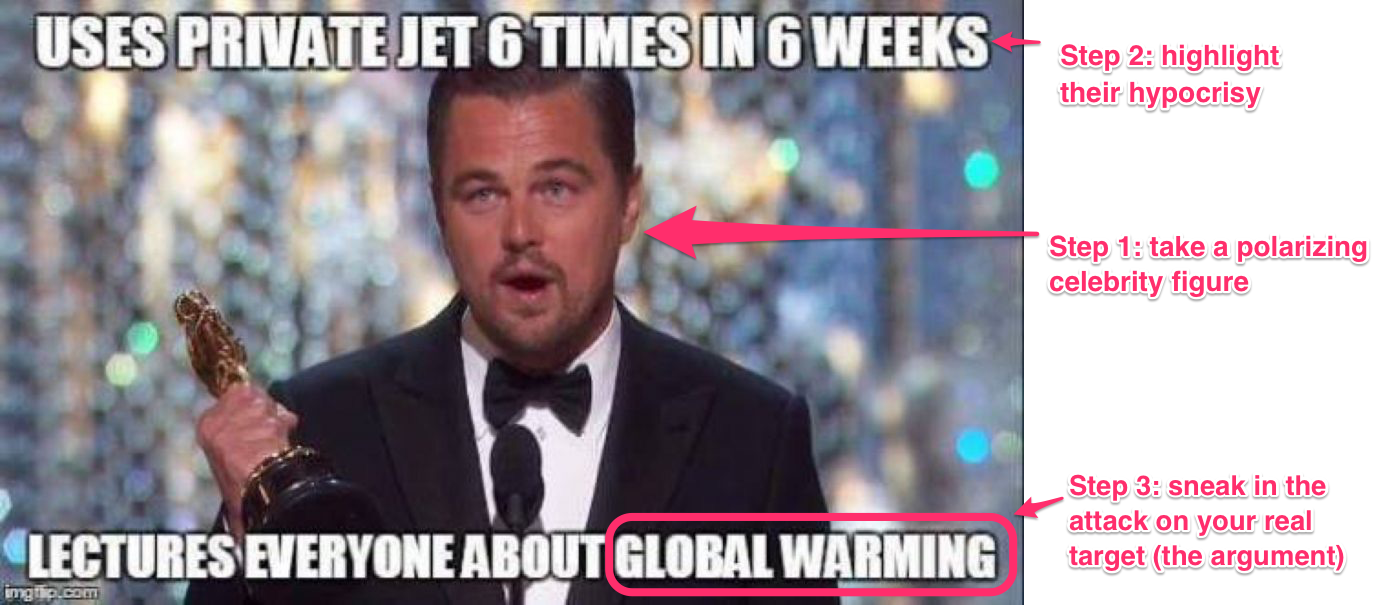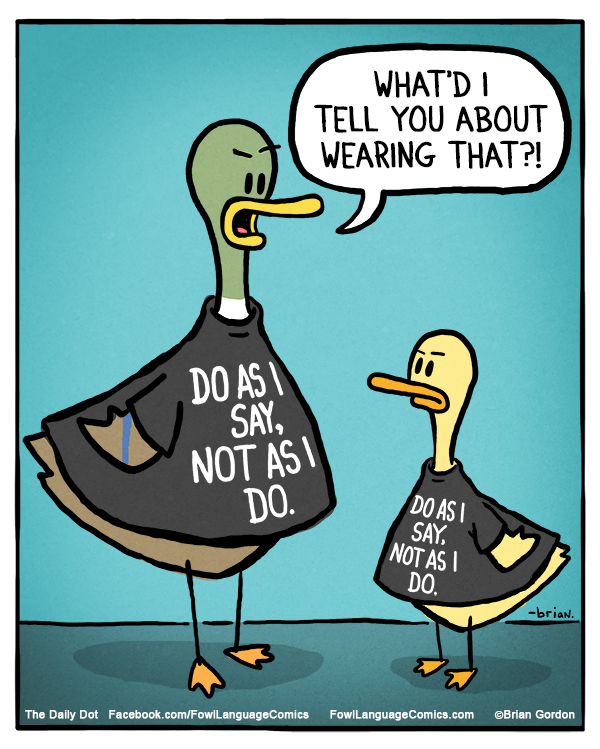Tu Quoque: Anatomy of an online argument
Does hypocrisy invalidate an argument? Consider the following examples:
Person A: “Global warming is a real threat to human society.”
Person B: “But you drive 50 miles a day in your big SUV. You’re such a hypocrite!”
Person A: “I’m a vegan by choice, because I’m against cruelty towards animals.”
Person B: “Plants are living things too. You’re such a hypocrite!”
In these exchanges, person B seems to have negated person A’s claim. They have also, essentially, shut down the conversation that person A wanted to start.
Sound familiar? The “such a hypocrite” argument is a very common one in our political discourse, especially in social media memes:






Appeals to Hypocrisy
There’s something that has always bothered me about this kind of argument. I used to be a big fan of the LSAT Logic podcast, which led to a fascination with logical fallacies. Appealing to hypocrisy smelled like a fallacy to me.
On the one hand, it seems fair to ask person A to be consistent. Nobody likes “Do as I say, not as I do”. On the other hand, does person A’s failure to live by their words invalidate their entire argument? For instance, does Al Gore’s lifestyle mean that Global Warming is not a threat?
Tu Quoque
Googling around, I came across a wonderful Stack Overflow thread: “Does hypocrisy invalidate an argument?”
And that’s where I learnt about:
Quoting Wikipedia:
Tu quoque “argument” follows the pattern:
- Person A makes claim X.
- Person B asserts that A’s actions or past claims are inconsistent with the truth of claim X.
- Therefore X is false.
It is a fallacy because the moral character or past actions of the opponent are generally irrelevant to the logic of the argument. It is often used as a red herring tactic and is a special case of the ad hominem fallacy.
Shifting Focus
The real goal of tu quoque (or any ad hominem attack) is to shift the focus to your opponent’s weaknesses as a way to hide your argument’s weaknesses.
One of the insidious ways this technique is used is in blaming the victim.
- e.g. highlighting that a victim of sexual assault used to dress provocatively or had an active sex life
- e.g. highlighting that the doctor who got dragged off a United Airlines flight was a drug user

A rational mind would say that it doesn’t matter what Dr. David Dao’s past was; nothing justifies the way United treated him. Just as it doesn’t matter what an assault victim was wearing; nothing justifies assault.
Then why does this kind of argument show up over and over in our political discourse?
Because we all have biases, and we all have brains that can be tricked with logical fallacies.
Want to know how this technique is used? It’s simple really:
Step 1: Pick a trigger image
Our minds are already biased towards/against certain people or groups. The tu quoque technique just gives you a little nudge in the direction you’re already leaning.
So if you dislike college liberals:

… then any argument using this meme is likely to work on you:

Similarly, if you dislike middle-aged white confederate men, any meme using a picture like this will work on you:

These images are often selected carefully to trigger an emotion in you. Women will look shrewish, powerful men will be shown smirking or sneering, the wealthy will be shown wallowing in glamour, etc.
Step 2: Add Moral Judgment
According to psychological research, there is a good reason people hate hypocrites:
[T]he principal offense of a hypocrite is not that he violates his own principles, but rather that his use of moral proclamations falsely implies that he himself behaves morally.
That is, a person making a normative claim like “Global warming is a real problem” is indirectly making a moral judgment about you. They’re signaling their moral superiority because they behave a certain way.
And nobody likes that:



Step 3: Add in the argument you’re trying to weaken
Take a look at this picture. Since the brain processes images before text, and text is processed in order from top to bottom, your mind has already been primed by the time you get to the “argument”:

- The image of DiCaprio to remind you of something you hate: Hollywood elites
- The text on top to remind you of his moral superiority
- Finally, the topic you’re being primed to be unfavorable towards: in this case, global warming
Awareness is Power
Now that you can recognize the way these arguments are constructed, you have the power to not let them affect you.
For further reading, please go and read more about logical fallacies on Wikipedia.




